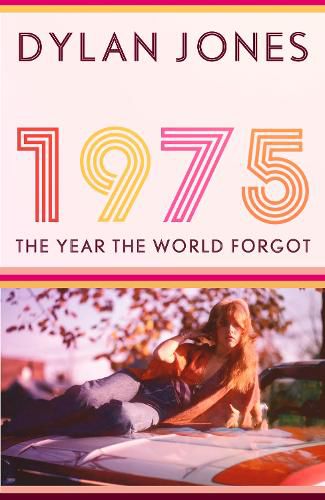Readings Newsletter
Become a Readings Member to make your shopping experience even easier.
Sign in or sign up for free!
You’re not far away from qualifying for FREE standard shipping within Australia
You’ve qualified for FREE standard shipping within Australia
The cart is loading…






There is a myth that the long, dark days before punk were full of legions of British prog rock groups; that the likes of Yes, Genesis, King Crimson, Emerson Lake & Palmer and Jethro Tull roamed the land, soiling the culture like university-educated Orcs.
Wrong.
The mid-seventies were dense with extraordinarily sophisticated, mature rock music made by singers, songwriters and musicians who had no problem calling themselves artists. None at all. And the records they made aspired to artistic status: everyone was trying to make their own masterpiece, and the sense of competitiveness was like something not seen since the mid-sixties. Three-minute pop singles had given way to concept albums and pop-package tours had been supplanted by rock festivals, and rock in general had a renewed sense of ambition.
1975 was the apotheosis of the adult pop, the most important year in the narrative arc of post-war music, and a year that was rich with masterpieces: Blood on the Tracks by Bob Dylan, The Who by Numbers by the Who, Young Americans by David Bowie, The Koln Concert by Keith Jarrett, Siren by Roxy Music, Another Green World by Brian Eno, The Hissing of Summer Lawns by Joni Mitchell, Marcus Garvey by Burning Spear, Katy Lied by Steely Dan, Chocolate City by Parliament, A Night at the Opera by Queen &c.
These records were magisterial; records that couldn't be bettered. Who could realistically make a more sophisticated album than The Hissing of Summer Lawns? Or a more complex hard-rock album than Physical Graffiti? Or indeed a record as unimpeachable and as prescient as Horses?
1975 was the greatest year of them all.
$9.00 standard shipping within Australia
FREE standard shipping within Australia for orders over $100.00
Express & International shipping calculated at checkout
There is a myth that the long, dark days before punk were full of legions of British prog rock groups; that the likes of Yes, Genesis, King Crimson, Emerson Lake & Palmer and Jethro Tull roamed the land, soiling the culture like university-educated Orcs.
Wrong.
The mid-seventies were dense with extraordinarily sophisticated, mature rock music made by singers, songwriters and musicians who had no problem calling themselves artists. None at all. And the records they made aspired to artistic status: everyone was trying to make their own masterpiece, and the sense of competitiveness was like something not seen since the mid-sixties. Three-minute pop singles had given way to concept albums and pop-package tours had been supplanted by rock festivals, and rock in general had a renewed sense of ambition.
1975 was the apotheosis of the adult pop, the most important year in the narrative arc of post-war music, and a year that was rich with masterpieces: Blood on the Tracks by Bob Dylan, The Who by Numbers by the Who, Young Americans by David Bowie, The Koln Concert by Keith Jarrett, Siren by Roxy Music, Another Green World by Brian Eno, The Hissing of Summer Lawns by Joni Mitchell, Marcus Garvey by Burning Spear, Katy Lied by Steely Dan, Chocolate City by Parliament, A Night at the Opera by Queen &c.
These records were magisterial; records that couldn't be bettered. Who could realistically make a more sophisticated album than The Hissing of Summer Lawns? Or a more complex hard-rock album than Physical Graffiti? Or indeed a record as unimpeachable and as prescient as Horses?
1975 was the greatest year of them all.